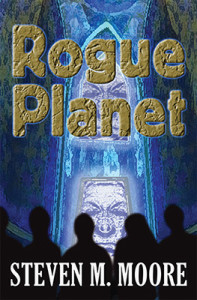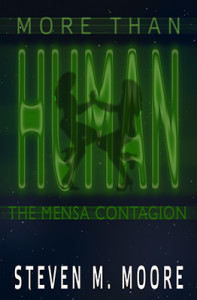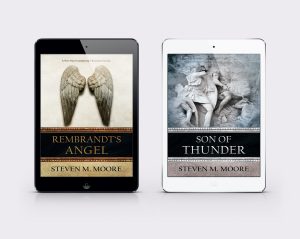Series fatigue…
Readers of this blog know I binged on Faith Martin’s Jenny Starling series, seven Brit-mystery novels (lots of time to read during this pandemic, and reading a novel is much more interesting than any computer game). I reviewed that entire series recently (maybe a first among reviewers?). I started on her Hillary Greene series, which contains twelve books at last count, but I stopped after reading seven. What happened? I found out that binge-reading series can cause fatigue. I got tired of old Hillary and her hang-ups; the books seemed too similar; and the themes, if present, seemed too tame. Ms. Martin doesn’t hold the record for causing my series fatigue. I couldn’t even get beyond A in Sue Grafton’s alphabet series.
In general, readers can tire of series. Of course, the main problem with a series of novels is that it is a series. Authors must work hard to make each novel stand alone and allow the reader to jump into the series at any point. In each novel, there can be references to events in previous novels, but these should only be “little rewards” for the series’ dedicated followers. In other words, they could be deleted without affecting the reading of each novel. The Jenny Starling series does a good job of this; the Hillary Greene series, not so much, because the plots of one book often depend too much on what happened to the DI in earlier books, making each novel too much like an episode from a soap opera.
Considering that I have a long-standing tradition of following my own advice, I was surprised when a Goodreads reviewer stopped reading my novel Son of Thunder because he hadn’t realized it was a novel in a series. The surprise was partly due to the fact that I’d had independent verification that I follow my own advice well: A reviewer of a Chen and Castilblanco novel stated just the opposite, saying that I should teach a course on how to make a series book in a series stand alone.
That GR reviewer is entitled to his opinion, of course—reading appreciation is so subjective—but I wish he’d tried a bit harder. Or read the first book, Rembrandt’s Angel, if he felt the need. Maybe his loss? And, from my experience, he’s not the only reviewer who doesn’t want to jump in mid-series. (I’m suspicious of reviewers’ requests for books in the series previous to the one I’m asking them to review. While I value every review I get and send a blanket thanks to all the reviewers–as a reviewer myself, I know reviewing is time-consuming–I don’t think reviews help all that much. See last week’s post.)
I wish I knew all the causes for series fatigue in readers, including myself. That would give me a better list of things to avoid as a writer. Moreover, it would help me answer some questions: Why did I start to drag my heels with #6 in the Chen and Castilblanco series? I thought I’d ended my malaise with #7, but when I finished it, I decided I needed to take a break from that series.
Fortunately Esther Brookstone and Bastiann van Coevorden were clamoring for their own novels…and my muses (really banshees with Tasers) were hounding me to write them. But then I felt the same way after finishing the second novel in the “Esther Brookstone Art Detective” series, Son of Thunder. It was a hard act to follow, after all (it could almost be called a Christian mystery/thriller!). But I still found motivation to write #3, Death on the Danube (those muses are relentless)—I’m still deciding what to do with that manuscript, though. And then maybe I’ll continue the series…because I really love these characters!

A Time-Traveler’s Guide through the Metaverse, a completely independent sci-fi rom-com, refreshed me a bit too—I submitted that manuscript. (We’ll see how that goes.) It was a lot of fun to write and hopefully finds a few readers who will have fun reading it. Perhaps I’m better off not writing series? And this one probably won’t become a series. Same for my sci-fi novels Rogue Planet and More than Human: The Mensa Contagion. The first is hard sci-fi but has Game-of-Thrones fantasy elements; it could definitely become a series, as hinted at the end, but it’s really a transition novel from the “Chaos Chronicles Trilogy” series and some of A.B. Carolan’s books. The second was going to be a trilogy, but I collapsed two stories into one. Maybe I’ll redo it, because it too hints at another novel at the end. Possibilities, possibilities…and those muses seem quiet about those possibilities right now.

There are many positives and negatives for writers who think about writing a series. One obvious positive is that both readers and the author become more comfortable with the series’ main characters (villains as well as protagonists). The author can develop them more; the readers can watch them develop. But that can lead to an important negative even if each book’s plot is fresh and new and contains new themes: Both readers and the author can get tired of the characters!
Maybe that’s what happened between me and Chen and Castilblanco? Or did I just need a vacation from that series? Maybe those two wonderful characters will feel bad if I don’t put them in more novels, but I don’t know about myself. After all, my hero and famous sci-fi and mystery writer, Isaac Asimov, took a vacation from writing any kind of fiction for many years! I’m still writing fiction, but maybe there won’t be anymore series.
And poor Hillary Greene. Maybe I just had enough of her. I hope she forgives me.
***

Comments are always welcome.
“Esther Brookstone Art Detective.” In this series, the reader will meet Esther Brookstone, ex-MI6 spy and Scotland Yard inspector working out of the Art and Antiques Division, and Bastiann van Coevorden, Interpol agent, who are twenty-first versions of the famous sleuths Miss Marple and Hercule Poirot, except that Esther is a bit more nimble and sexy and Bastiann a bit less flamboyant. In Rembrandt’s Angel, Esther becomes obsessed with recovering a painting stolen by Nazis in WWII. In Son of Thunder, her obsession is to find St. John the Divine’s tomb. In both novels, Bastiann tries to keep her on an even keel. Available in print and .mobi (Kindle) ebook format at Amazon and the publisher, Penmore Press, and in all ebook formats at Smashwords and all its affiliated retailers (iBooks, B&N, Kobo, etc.) and lending and library services (Scribd, Overdrive, Baker & Thomas, Gardners, etc.). Novel #3 is in the works.
Around the world and to the stars! In libris libertas!
